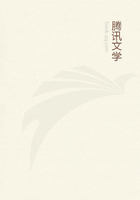It is now plain what our aims, future or actual, should be in urging, and what in depreciating, a proposal; the latter being the opposite of the former. Now the political or deliberative orator's aim is utility: deliberation seeks to determine not ends but the means to ends, i.e. what it is most useful to do. Further, utility is a good thing. We ought therefore to assure ourselves of the main facts about Goodness and Utility in general.
We may define a good thing as that which ought to be chosen for its own sake; or as that for the sake of which we choose something else; or as that which is sought after by all things, or by all things that have sensation or reason, or which will be sought after by any things that acquire reason; or as that which must be prescribed for a given individual by reason generally, or is prescribed for him by his individual reason, this being his individual good; or as that whose presence brings anything into a satisfactory and self-sufficing condition; or as self-sufficiency; or as what produces, maintains, or entails characteristics of this kind, while preventing and destroying their opposites. One thing may entail another in either of two ways-(1) simultaneously, (2) subsequently. Thus learning entails knowledge subsequently, health entails life simultaneously.
Things are productive of other things in three senses: first as being healthy produces health; secondly, as food produces health; and thirdly, as exercise does-i.e. it does so usually. All this being settled, we now see that both the acquisition of good things and the removal of bad things must be good; the latter entails freedom from the evil things simultaneously, while the former entails possession of the good things subsequently. The acquisition of a greater in place of a lesser good, or of a lesser in place of a greater evil, is also good, for in proportion as the greater exceeds the lesser there is acquisition of good or removal of evil. The virtues, too, must be something good; for it is by possessing these that we are in a good condition, and they tend to produce good works and good actions. They must be severally named and described elsewhere. Pleasure, again, must be a good thing, since it is the nature of all animals to aim at it. Consequently both pleasant and beautiful things must be good things, since the former are productive of pleasure, while of the beautiful things some are pleasant and some desirable in and for themselves.
The following is a more detailed list of things that must be good.
Happiness, as being desirable in itself and sufficient by itself, and as being that for whose sake we choose many other things. Also justice, courage, temperance, magnanimity, magnificence, and all such qualities, as being excellences of the soul. Further, health, beauty, and the like, as being bodily excellences and productive of many other good things: for instance, health is productive both of pleasure and of life, and therefore is thought the greatest of goods, since these two things which it causes, pleasure and life, are two of the things most highly prized by ordinary people. Wealth, again: for it is the excellence of possession, and also productive of many other good things. Friends and friendship: for a friend is desirable in himself and also productive of many other good things.
So, too, honour and reputation, as being pleasant, and productive of many other good things, and usually accompanied by the presence of the good things that cause them to be bestowed. The faculty of speech and action; since all such qualities are productive of what is good.
Further-good parts, strong memory, receptiveness, quickness of intuition, and the like, for all such faculties are productive of what is good. Similarly, all the sciences and arts. And life: since, even if no other good were the result of life, it is desirable in itself.
And justice, as the cause of good to the community.















